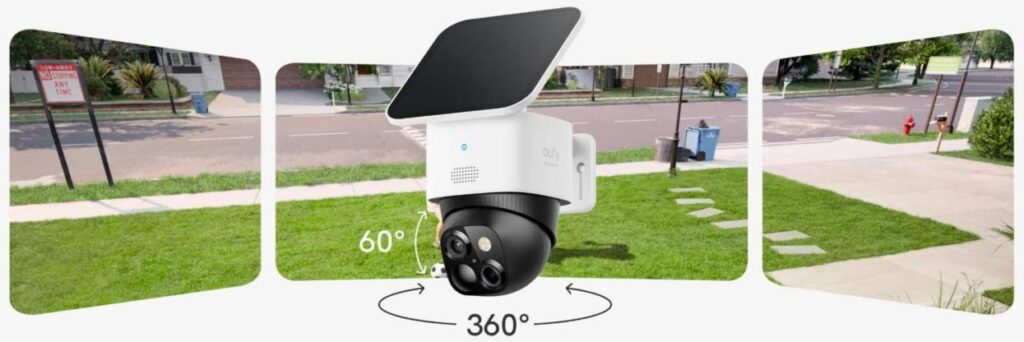Privacy is one of the most valued aspects of feeling comfortable in your own home. When a neighbor’s camera captures your space, it can feel intrusive and unsettling. This guide explores effective, lawful, and respectful ways to protect your privacy while maintaining peaceful coexistence. We’ll discuss your legal rights, communication strategies, physical barriers, smart technologies, and proactive privacy habits to help you preserve both safety and neighborly harmony.
Understanding Your Legal Rights and Privacy Boundaries
Knowing Property Rights and Reasonable Privacy
Your home is your personal haven, yet privacy isn’t always absolute. Understanding property lines and what counts as a “reasonable expectation of privacy” is vital. Generally, spaces visible from public areas like sidewalks or roads are not protected, but secluded spaces, such as fenced backyards, are. Knowing these distinctions ensures you protect your privacy without unintentionally overstepping your neighbor’s legal rights.
Identifying Unlawful Camera Placement
If your neighbor’s camera seems directed at intimate spaces—like inside windows, bathrooms, or bedrooms—it may violate privacy laws. Exterior views, such as driveways or streets, are often acceptable, but capturing private, non-public areas could be illegal. Recognizing when a camera’s placement crosses this boundary helps you decide whether to address it personally or seek further guidance from local authorities or legal professionals.
Checking Local Laws and Seeking Legal Help
Privacy and camera surveillance laws vary widely by city and state. Research your local ordinances to understand acceptable camera use and angles. If a neighbor’s camera appears invasive, these laws can clarify your legal position. When communication fails, consulting a property or privacy lawyer can provide clear direction, helping you take formal steps to restore your sense of safety while remaining within the law.
Communicating With Your Neighbor Effectively
Preparing for a Calm and Honest Conversation
Approaching your neighbor with composure and empathy can lead to productive dialogue. Before you speak, plan your words to express how the camera affects your privacy without assigning blame. Emphasize understanding and mutual respect rather than confrontation. This approach minimizes defensiveness, encourages cooperation, and opens the door to resolving the issue amicably without unnecessary conflict or escalation.
Suggesting Fair and Practical Compromises
Once the conversation begins, focus on collaborative solutions rather than demands. Suggest adjusting the camera’s angle, repositioning it, or adding a physical shield that still meets your neighbor’s security needs. By demonstrating your willingness to compromise, you reinforce goodwill and foster mutual respect. Often, neighbors are unaware of how their cameras impact others and will gladly make adjustments once informed.
Escalating the Issue Legally if Needed
If respectful discussions fail to achieve results, consider escalating gradually through proper channels. Start by contacting your homeowner association or local mediation services. Only resort to formal legal action when all other efforts are exhausted. Legal involvement can be effective, but it may strain long-term relationships, so it’s best used as a last option for protecting your home’s peace and privacy.
Physical and Landscape Solutions to Block the View
Installing Privacy Fences, Screens, and Green Barriers
Physical barriers like privacy fences, trellises, or tall hedges can effectively obstruct unwanted views. Opt for designs that enhance your yard’s appearance while providing security and seclusion. Natural barriers, such as bamboo, evergreens, or climbing vines, add aesthetic charm while ensuring protection. These solutions create a peaceful, private environment without creating hostility between you and your neighbors.
Using Privacy Films, Awnings, or Pergolas
Privacy films applied to windows prevent cameras from capturing your interior without blocking natural light. Adding awnings or pergolas extends coverage for patios and gardens, offering shade and comfort while increasing privacy. These enhancements are simple to install, visually appealing, and functional. They strike a balance between open living and personal protection, maintaining both style and discretion around your home.

Adding Outdoor Lighting to Deter Unwanted Recording
Strategically placed outdoor lighting can discourage unwanted camera surveillance. Motion-activated lights illuminate your property when movement is detected, making recordings difficult and enhancing security. Well-lit spaces deter intrusions while giving you control over visibility. This approach not only protects your privacy but also improves home safety, ensuring that your family feels secure both day and night.
Smart Tech and Digital Privacy Tools
Setting Up Your Own Security Camera for Coverage
Installing your own cameras helps document your property boundaries and provides valuable evidence if disputes arise. Strategically placed security systems can discourage inappropriate surveillance and offer reassurance that your home is protected. Moreover, having your own footage ensures transparency and accountability, giving you peace of mind that your space is being monitored on your terms, not someone else’s.
Using IR Blockers and Privacy Masking Tools
Infrared (IR) blockers and privacy-masking devices prevent neighboring cameras from recording specific areas. These tools are designed to disrupt unwanted footage ethically, without interfering with legitimate security measures. Employing such technology ensures your privacy while respecting others’ rights. It’s a modern and efficient solution for maintaining control over your home environment in an increasingly camera-dense world.
Avoiding Illegal Interference Devices
While protecting your home is essential, avoid any technology that actively disables or jams your neighbor’s cameras. These actions are illegal and can result in fines or criminal charges. Instead, focus on lawful and constructive measures—like strategic landscaping, lighting, and communication—that preserve your privacy while upholding mutual respect. Responsible action ensures peace and compliance with all local regulations.
Building Long-Term Privacy Habits
Practicing Good Camera Etiquette in Shared Spaces
Setting a positive example encourages a respectful neighborhood atmosphere. When placing your own cameras, ensure they don’t capture shared or private areas of others’ property. Communicating clearly about your setup demonstrates integrity and promotes trust. Over time, this mutual understanding cultivates a community where everyone values both safety and privacy equally, creating an environment of consideration and cooperation.
Using Clear Signage and Transparency at Home
Transparency fosters mutual respect. Use signs to indicate areas under surveillance on your property, signaling honesty and openness. This reassures neighbors and deters potential intrusions. Being upfront about your security systems not only strengthens trust but also helps prevent misunderstandings, making your community safer and more cohesive for everyone who values comfort, privacy, and responsible camera use.
Reviewing Your Setup and Neighbor Relations Regularly
Privacy management is an ongoing process that evolves with technology and relationships. Regularly review your security setup, fencing, and neighborhood dynamics. Update your strategies when new challenges or tools emerge. Periodic reassessment keeps your privacy solutions effective and balanced, ensuring that your home remains both secure and harmonious in the long term while preserving healthy neighborly relations.
Conclusion
Safeguarding your home’s privacy requires balance, awareness, and respect. By understanding legal frameworks, communicating calmly, and adopting thoughtful physical and digital solutions, you can preserve your peace without conflict. Regularly reviewing your privacy habits ensures long-term effectiveness. Remember, being informed and proactive is the best answer when exploring how to block neighbors security camera while maintaining a positive neighborhood environment.



